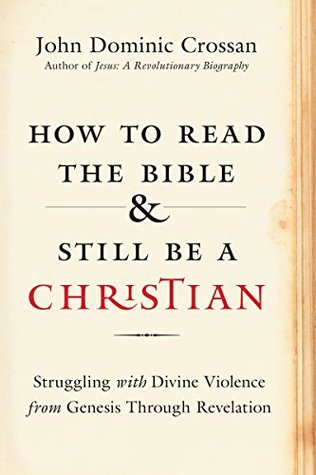More on this book
Community
Kindle Notes & Highlights
Read between
August 10 - August 31, 2019
A vision of the radicality of God is put forth, and then later, we see that vision domesticated and integrated into the normalcy of civilization so that the established order of life is maintained.
The struggle is not between divine good and human evil but between, on one hand, God’s radical dream for an Earth distributed fairly and nonviolently among all its peoples and, on the other hand, civilization’s normal dream for me keeping mine, getting yours, and having more and more, forever. The tension is not between the Good Book and the bad world that is outside the book. It is between the Good Book and the bad world that are both within the book.
They also knew that Genesis 2–3 was not a tragic tale of “if only” Adam had not taken that first bite, humanity would have been immortal. Both these stories were metaphorical warnings against transcendental delusions of human immortality. They were parables proclaiming that death is our common human destiny.
the tree of life with the tree of knowledge. In other words, I take very seriously that it is not just the tree of knowledge but precisely and explicitly the tree of the knowledge of good and evil from which Adam and Eve have eaten—that is, the tree of ethical awareness, or the tree of moral integrity, or most simply, the tree of conscience. Our humanity, Genesis concludes, is not distinguished by being immortal, for that is an impossibility, but by being moral—and that is a responsibility. Alone among all the animals, we do not just have instinct to control us but also conscience to guide us.
It is traditional to think of Genesis 2–3 as concerned with obedience and disobedience, human sin and divine punishment, and in a word, the “fall” of humanity. But of course, none of these words or concepts is ever mentioned in the text. Humankind had chosen to live within the challenge of conscience rather than within the delusion of immortality. In other words, realities are not penalties, and human consequences are not divine punishments.
Notice that human consequences are not misinterpreted as divine punishments.
the normalcy of human civilization is not the inevitability of human nature.
The mark of Cain is on human civilization, not on human nature. Escalatory violence is our nemesis, not our nature; our avoidable decision, not our unavoidable destiny.
“sin” in Genesis 4 is not a flaw in creation but in civilization, a fault not in nature but in culture.
There is no divine repentance for the flood’s violence, but at least there is a divine promise of “never again.”
As I use those two terms, by the way, consequences flow internally from an act, whereas punishments flow externally from it. For example, a drunk driver hits a tree and is killed by the impact—that is a consequence; a drunk driver hits a tree and is fined by the police—that is a punishment.
The purpose, reason, and intention of the Sabbath day was to give all alike—householders, children, slaves, animals, and immigrants—the same rest every week. It was not rest for worship of God, but rest as worship of God.
The Sabbath day placed distributive justice—where all God’s people get a fair share of all God’s earth—as the rhythm of time and the metronome of history.
Humans are now permitted to eat animals but must signify that as divine permission rather than human right since life-as-blood belongs to God.
the suggestion from the end of the last chapter: if there is no such thing as divine punishments, but rather only human consequences, then there is no such thing as divine forgiveness, but rather only the possibility of human change; and there is no such thing as divine mercy, but rather only the time within which change is still possible before it is too late.
“where there is no vision, the people perish” (29:18 KJV).
“You have been waiting for God while God has been waiting for you. No wonder God’s Kingdom has never arrived. You have been awaiting intervention while God has been awaiting collaboration. No wonder God’s Kingdom will never arrive.”
“God, without us, will not; as we, without God, cannot.”


